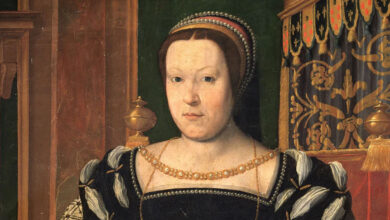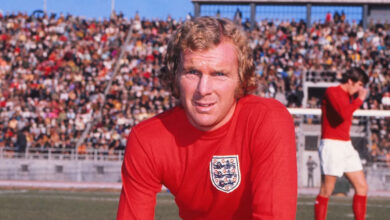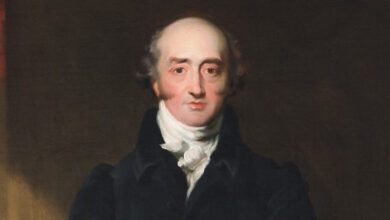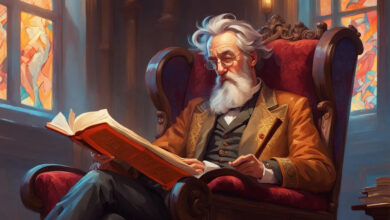Podcast: Play in new window | Download
Subscribe: Spotify | Amazon Music | Youtube Music | RSS
Winston Churchill was born at Blenheim Palace, in Oxfordshire on 30 November 1874. He grew up as part of Great Britain’s rich aristocracy but even with essentially unlimited resources behind him, he failed to achieve good grades at school. This, accompanied by a fascination with all things to do with the military and the death of his father led to him joining the British Fourth Hussars, a cavalry regiment in 1895. Over the next five years he enjoyed a very successful military career, distinguishing himself several times in battle serving in India, the Sudan, and South Africa. However, he resigned his commission in 1900 to concentrate on writing and politics and in the same year Churchill was elected as the Conservative MP for Oldham, but became disillusioned and switched to the Liberal Party in 1904.
In September 1908 Churchill married Clementine Hozier. They remained married for 57 years, but his political career put strain on the marriage and there were also rumours of an affair with Doris Castlerosse in the 1930s. The Churchills had five children. Diana was born in 1909, Randolph in May 1911, Sarah in October 1914, Marigold in November 1918, and Mary in September 1922. Unfortunately, though, Marigold died in 1921 from sepsis of the throat.
From 1904 and for the next ten years, Churchill steadily climbed the ranks within the Liberal Party. In 1911 he achieved the position of First Lord of the Admiralty, which essentially made him the political and civil leader of the Royal Navy but due to the disaster which was the Gallipoli campaign, which began in January 1915, and was his brainchild, he ended up resigning from the position. As a consequence, he decided to travel to the Western Front in order to get directly involved in the fighting, volunteering to command an infantry battalion in France.
Two years later, in 1917, Churchill returned to politics, and was a cabinet minister in the Liberal Government under Lloyd George and between 1919 and 1921 he was Secretary of State for War.
However, in 1924, Churchill shifted his allegiance again and ‘crossed the floor’ back to the Conservative Party and served as Chancellor of the Exchequer from the same year, making the controversial decision to opt Britain back into the Gold Standard. He also played a pivotal role in the defeat of the 1926 general strike.
In 1929, the Conservatives lost the election and Churchill lost his seat which resulted in him spending the next 11 years out of office, turning his attention instead to writing and making speeches. Some of what he had to say was controversial, such as his opposition to Indian independence, but he was also correct when it came to his warnings about Japanese aggression and the futility of Appeasement with Nazi Germany.
The Appeasement of Nazi Germany was an undertaking by Prime Minister Neville Chamberlain, who, as a result of war breaking out in 1939, resigned the following year. An all-party coalition government chose Winston Churchill as his replacement.
Some of Winston Churchill’s most memorable speeches were given during the war years and had the effect of raising the morale of the British nation, even though it was a period of great hardship. He also assumed the self-created position of Minister for Defence and was directly involved in both administrative and diplomatic functions.
Following Churchill’s success as Prime Minister during the Second World War it came as a shock to many when the Conservatives lost the election in 1945, with Clement Atlee being returned to form a Labour Government.
Churchill was, once again out of office, and returned to writing and making speeches as he had before. One of his speeches, which took place in 1946 warned of the danger from the Soviet Union and declared that “an iron curtain has descended across the continent”.
In 1951, the Conservatives were returned to power and so Winston Churchill was once again in office as the British Prime Minister. However, it was clear to many that he was not the man he used to be and to some was clearly not fit for office. He was not only aging, he was 77 when he took office, but his health was also deteriorating, and he had suffered from several minor strokes and he often had to conduct business from his bed.
He had continued his writing though and was awarded a Nobel Prize in literature for his six-volume historical study of the Second World War, as well as for his political speeches. In the same year, on 24 April, he was knighted by Queen Elizabeth II.
However, he failed to produce results from his diplomatic efforts to decrease the developing cold war and his effect on domestic policy was limited.
On 23 June 1953, Churchill suffered a more serious stroke and became partially paralysed down one side, but the problem was kept secret and he had fully recovered by November, but this only delayed the inevitable. He resigned due to ill health in 1955 with the Deputy Prime Minister and Foreign Secretary Anthony Eden taking office in his place. On 12 January 1965, Winston Churchill suffered a final stroke and died in London on 24 January, the seventieth anniversary of his father’s death. Following in the footsteps of the Duke of Wellington in 1852 and William Gladstone in 1898, he was honoured with a state funeral. His coffin lay in state for three days and the funeral ceremony was conducted at St. Paul’s Cathedral on 30 January, after which the coffin was transported by boat on the River Thames to Waterloo Station and then by special train to his final resting place in the family plot at St. Martin’s Church in Bladon, near to his birthplace at Blenheim Palace.
Podcast: Play in new window | Download
Subscribe: Spotify | Amazon Music | Youtube Music | RSS




